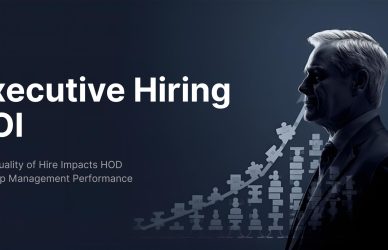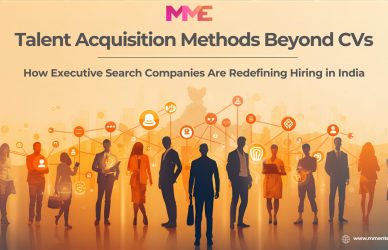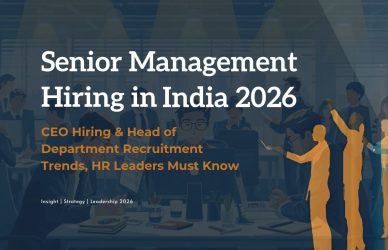Introduction: The Evolving Landscape of HR in the USA
In 2025, the American business environment is undergoing a significant transformation. Traditional HR frameworks are being replaced by innovative, technology-driven models that prioritize agility, compliance, and strategic growth. At the heart of this evolution is the rising prominence of Professional Employer Organizations (PEOs)—partners that are redefining human resource management for businesses across the United States.
Digitization and Workforce Agility Fuel the Shift
The digital revolution has accelerated in the post-pandemic era, driving businesses to rethink how they manage talent. From cloud-based HR systems to AI-powered employee analytics, technology is streamlining previously manual tasks. At the same time, hybrid and remote work models have become mainstream, prompting organizations to adopt more flexible HR strategies. PEOs are at the forefront of this shift, offering adaptable solutions that support geographically dispersed teams and remote onboarding with ease.
PEOs: Beyond Administrative Support
In the past, PEOs were often viewed as providers of back-office functions like payroll processing and benefits administration. However, in 2025, their role has evolved to become deeply strategic. Today’s PEOs offer end-to-end HR services—from talent acquisition and training to compliance audits and culture-building initiatives. Their expertise in federal and state labor laws makes them indispensable partners for businesses striving to stay ahead of regulatory changes and workforce expectations.
Addressing Compliance and Risk Management
The ever-changing legal landscape in the USA continues to be a challenge for businesses. In 2025, new regulations around data privacy, gig work classification, and workplace inclusivity demand proactive compliance measures. PEOs are equipped to handle these complexities, ensuring businesses remain compliant while minimizing risk. With their shared liability model, companies can transfer certain legal responsibilities to PEOs, adding an extra layer of protection.
Enabling Growth Through Scalability
Startups and mid-sized enterprises face the dual challenge of managing HR efficiently while scaling operations. PEOs provide a cost-effective, scalable infrastructure that grows with the company. By handling benefits, taxes, and employee relations, they free up leadership teams to focus on innovation and expansion—both domestically and internationally. Many PEOs now support global employment through strategic partnerships, making cross-border hiring easier than ever.
A Strategic HR Model for a New Era
In 2025, HR is no longer just about administration—it’s a strategic function central to business growth and workforce resilience. PEO services in the USA are empowering companies with cutting-edge tools, expert support, and operational flexibility, positioning them to succeed in an increasingly complex business landscape.

What Are PEO Services? An Overview for 2025
In 2025, Professional Employer Organizations (PEOs) have become central to how modern businesses manage their human capital. A PEO enters a co-employment arrangement with a client business, assuming many of the legal and administrative responsibilities of the employer while the business retains control over day-to-day operations. This model enables companies to offload complex HR tasks while maintaining focus on growth and core business functions.
Key Functions of a PEO in 2025
PEOs offer a wide array of services that address every aspect of workforce management:
Payroll and Tax Administration: Managing wage calculations, tax withholdings, filings, and employee compensation compliance.
Employee Benefits and Insurance Management: Providing access to healthcare plans, retirement packages, and other perks often reserved for large corporations.
Regulatory Compliance and Risk Mitigation: Ensuring alignment with ever-evolving federal, state, and local labor laws, including handling audits and employment disputes.
HR Technology and Analytics: Deploying AI-powered platforms for real-time workforce tracking, predictive analysis, and performance optimization.
Recruitment Support and Onboarding: Assisting with talent acquisition, background checks, and seamless onboarding experiences for new hires.
Evolution from Administrative to Strategic HR Partners
PEOs in 2025 are no longer viewed as merely administrative vendors. With advancements in AI, cloud computing, and real-time analytics, PEOs have transformed into strategic partners. They enable businesses to make data-driven decisions, enhance employee engagement, and reduce turnover through better-informed HR strategies. Their role now supports not just compliance, but also long-term workforce planning and performance management.
Serving a Diverse Range of Business Models
Today’s PEO industry caters to an increasingly diverse clientele:
- Gig Economy Platforms needing scalable HR solutions for freelance or contract talent.
- Remote-First Companies requiring flexible HR infrastructure across multiple locations.
- Multinational Startups expanding into the U.S. and navigating complex labor laws.
These businesses benefit from the PEO’s ability to deliver end-to-end solutions that simplify global expansion, reduce overhead costs, and accelerate market entry.
Leveling the Playing Field for Smaller Companies
Perhaps one of the most significant values a PEO brings in 2025 is access to enterprise-grade benefits for small and mid-sized businesses. Through collective bargaining power, PEOs offer competitive benefits packages that help smaller firms attract and retain top talent—something previously only possible for large corporations. This democratization of HR resources is reshaping how smaller businesses compete in the talent market.

PEO Services Trends in the USA for 2025
The PEO (Professional Employer Organization) industry in the United States is undergoing rapid innovation in 2025, responding to a dynamic business environment and evolving workforce expectations. As organizations prioritize agility, compliance, and strategic workforce management, PEOs are adopting cutting-edge technologies and broadening their service offerings. The following key trends highlight how PEO services in the USA are transforming the HR landscape in 2025.
1. AI-Driven HR Management
Artificial Intelligence (AI) is reshaping how PEOs deliver value to businesses. In 2025, PEOs are harnessing AI for predictive analytics, employee sentiment analysis, and automated compliance alerts. These tools enable businesses to anticipate talent shortages, reduce attrition, and proactively address regulatory risks. AI-driven insights help identify patterns in employee engagement and productivity, allowing companies to make smarter, data-backed HR decisions.
2. Focus on Hybrid and Remote Work
The shift toward remote and hybrid work models continues to challenge traditional HR frameworks. Companies now operate with employees scattered across multiple states, each with its own labor laws, tax regulations, and benefits requirements. PEOs have become essential in 2025 by managing multistate payroll, ensuring localized legal compliance, and offering remote onboarding solutions. Unified digital platforms allow for seamless integration and management of decentralized teams.
3. Enhanced Employee Experience
As the competition for talent intensifies, companies are turning to PEOs to help enhance the employee experience. In 2025, PEOs offer personalized wellness programs, flexible benefit packages, and Diversity, Equity, and Inclusion (DEI) initiatives tailored to different workforce demographics. Whether addressing the needs of Gen Z or supporting older workers with upskilling opportunities, PEOs are helping clients build engaging, inclusive workplace cultures.
4. Cybersecurity and Data Protection
With the rise of digital HR platforms, cybersecurity and data privacy have become top concerns. PEOs are responding by investing in secure Human Resource Information Systems (HRIS) that comply with both U.S. regulations (like HIPAA and CCPA) and global standards (like GDPR). These platforms offer data encryption, multi-factor authentication, and audit trails, ensuring sensitive employee information is protected at every level.
5. Cross-Border Employment and EOR Integration
American businesses are expanding their global footprint, and PEOs are playing a critical role through Employer of Record (EOR) models. In 2025, PEOs help companies onboard and manage international talent without needing to set up local legal entities. This simplifies compliance with foreign labor laws and taxation, making cross-border hiring more efficient and risk-free for startups and SMEs looking to scale globally.
6. ESG and HR Compliance Integration
Environmental, Social, and Governance (ESG) considerations have become an integral part of HR policy in 2025. PEOs are assisting businesses in aligning their workforce practices with sustainability goals, ethical labor standards, and community impact metrics. From implementing eco-friendly remote work policies to ensuring fair labor practices in global operations, PEOs are helping clients integrate ESG benchmarks into their core HR compliance strategies.
These trends demonstrate that PEOs are no longer just administrative partners—they are strategic enablers helping businesses adapt and excel in a rapidly changing world. By embracing innovation, prioritizing employee-centric solutions, and supporting global ambitions, PEOs in the USA are setting new standards for HR excellence in 2025.

Benefits of Using PEO Services in 2025
In 2025, Professional Employer Organizations (PEOs) in the USA are offering far more than traditional HR outsourcing. They’ve become integral strategic partners for businesses aiming to grow, remain compliant, and attract top talent in an increasingly complex business environment. The benefits of using PEO services in 2025 extend across cost, compliance, workforce management, and operational efficiency—making them a smart investment for companies of all sizes.
1. Cost Savings
One of the most compelling advantages of PEO services is cost efficiency. By pooling employees from multiple client companies, PEOs create economies of scale—particularly in high-cost areas like health insurance, payroll processing, and benefits administration. Small and mid-sized businesses can significantly reduce overhead expenses by accessing bundled services through a single provider. Additionally, automated HR systems provided by PEOs help streamline operations, reducing the need for in-house HR staff.
2. Legal and Tax Compliance
Navigating the legal landscape in the U.S. has become increasingly difficult, especially with varying laws across different states. PEOs keep companies compliant with federal, state, and local labor regulations, minimizing legal exposure. In 2025, PEOs also offer automated compliance monitoring and expert guidance on tax filings, labor classifications, and industry-specific regulations—helping businesses avoid costly fines and penalties.
3. Access to Competitive Benefits
Attracting and retaining talent in a tight labor market requires strong employee benefits. PEOs give smaller companies access to Fortune 500-level benefits such as medical, dental, vision, 401(k) retirement plans, life insurance, and mental wellness programs. This levels the playing field, allowing smaller firms to offer benefits packages that would otherwise be financially out of reach.
4. Improved Talent Acquisition and Retention
Recruiting top talent is a major challenge in 2025. PEOs help companies compete more effectively through advanced applicant tracking systems, streamlined onboarding, and performance management tools. These services improve hiring accuracy, accelerate time-to-hire, and foster employee engagement. The result is a more satisfied, productive workforce and reduced turnover rates.
5. Scalability
As businesses grow, so do their HR needs. PEOs offer scalable solutions that adapt to company size and geography. Whether a business is hiring in a single state or expanding to multiple locations, PEOs can manage the increasing complexity without requiring additional internal resources. Their infrastructure allows companies to scale quickly and responsibly, especially important in industries experiencing rapid growth or geographic expansion.
6. Time Efficiency
By offloading administrative tasks like payroll processing, benefits enrollment, tax filing, and employee record-keeping, businesses free up internal resources. Leadership teams can redirect their time and energy toward strategic priorities such as innovation, customer experience, and market expansion. In a fast-moving economy, this time efficiency can be a critical differentiator.
7. Risk Mitigation
PEOs serve as a safety net in a volatile regulatory environment. They stay current with changes in labor laws, wage requirements, and workplace safety standards, providing proactive updates and legal counsel. Many also offer workers’ compensation coverage, handle claims, and manage employment disputes—significantly reducing HR-related liabilities. Their expertise helps businesses avoid lawsuits, reputational damage, and operational disruptions.
In 2025, PEOs deliver far-reaching advantages that go beyond the basics. They enable businesses to act like large enterprises—offering competitive benefits, ensuring compliance, and driving workforce efficiency—without the associated overhead or risk. As a result, more businesses are turning to PEOs as trusted partners in their growth journey.

Top Industries Leveraging PEO Services in the USA
In 2025, Professional Employer Organizations (PEOs) have become vital partners across a wide spectrum of American industries. As businesses contend with regulatory complexities, workforce challenges, and the need for streamlined HR operations, PEOs offer tailored solutions that improve compliance, scalability, and employee satisfaction. While their services are applicable to nearly every sector, some industries are leveraging PEO partnerships more aggressively due to their unique operational needs.
Technology and Startups
The tech industry and startup ecosystem thrive on speed, agility, and innovation—qualities that often clash with the time-consuming demands of HR administration. In 2025, tech firms rely heavily on PEOs to manage multistate payroll, onboard international talent, and remain compliant with evolving labor laws. With lean HR teams and a focus on product development, startups turn to PEOs for everything from employee benefits to performance management systems. PEOs also enable rapid scaling, giving startups the infrastructure they need to grow without internal administrative bottlenecks.
Healthcare
The healthcare industry faces stringent regulations and staffing complexities, making it one of the top sectors using PEO services. From credentialing medical professionals to ensuring compliance with OSHA and HIPAA regulations, PEOs help healthcare organizations navigate the administrative and legal burdens associated with healthcare employment. They also assist in scheduling and shift management, which is critical in environments where 24/7 staffing is the norm.
Construction and Manufacturing
For construction and manufacturing companies, safety and compliance are paramount. PEOs provide essential support in workers’ compensation administration, OSHA training, and the documentation of workplace injuries. These industries also benefit from HR systems that track time, attendance, and employee certifications—ensuring legal compliance and workplace safety. As these sectors often operate across multiple job sites or facilities, the scalable and centralized HR support offered by PEOs is especially valuable.
Retail and Hospitality
Industries with high employee turnover and seasonal workforce fluctuations, such as retail and hospitality, find immense value in PEO partnerships. PEOs help automate hiring, onboarding, and benefits administration, reducing the burden on internal HR teams. Additionally, they streamline payroll and tax filings during peak seasons, ensuring smooth operations even during high-volume periods. Their ability to provide competitive benefits packages also helps with retention in a traditionally transient workforce.
Financial Services
The financial services industry operates under intense regulatory scrutiny, making compliance management a top priority. PEOs help financial institutions stay aligned with labor regulations, wage laws, and evolving tax codes. By offering secure HR platforms with advanced auditing capabilities, PEOs minimize legal risks and enhance operational transparency—key requirements in finance.
These industries exemplify how PEOs are reshaping workforce management by enabling regulatory compliance, reducing administrative overhead, and enhancing HR efficiency in 2025.

Choosing the Right PEO in the USA in 2025
In 2025, partnering with a Professional Employer Organization (PEO) is no longer just about outsourcing HR tasks—it’s a strategic move that can impact compliance, employee satisfaction, and long-term scalability. With hundreds of PEOs operating across the United States, businesses are becoming more selective, focusing on key factors that ensure operational synergy and ROI. Here’s what companies are prioritizing when choosing the right PEO in 2025.
Accreditation and Certification
The first checkpoint in selecting a reliable PEO is industry accreditation. Reputable providers are ESAC-accredited (Employer Services Assurance Corporation) and certified by the IRS, confirming financial stability, regulatory compliance, and ethical business practices. These certifications provide peace of mind, especially in industries with heightened legal and tax responsibilities.
Technology Platform
In a digital-first business environment, the quality of a PEO’s technology platform is a critical differentiator. Companies in 2025 demand cloud-based HRIS systems that feature mobile access, real-time dashboards, AI-enabled analytics, and employee self-service portals. A robust tech infrastructure ensures smoother payroll processing, faster onboarding, improved analytics, and greater transparency in HR functions.
Industry Specialization
PEOs that cater to specific industries offer more targeted value. Whether it’s understanding HIPAA compliance in healthcare, OSHA training for construction, or multistate compliance for tech startups, industry-specific knowledge helps PEOs tailor their services to align with unique challenges. This specialization reduces risk and enhances the relevance of services delivered.
Customization and Flexibility
Modern businesses no longer accept rigid service models. In 2025, flexibility is key. Companies are seeking PEOs that offer modular service options, allowing them to select only what they need—whether it’s payroll, benefits administration, compliance, or full-service HR. This approach reduces waste, improves satisfaction, and ensures the solution scales as the business evolves.
Customer Support and SLAs
Quality of service is just as important as the services themselves. Businesses are prioritizing PEOs that provide 24/7 customer support, dedicated account managers, and well-defined service level agreements (SLAs). These elements guarantee responsiveness, minimize disruptions, and build long-term trust.
Transparency in Pricing
In 2025, pricing clarity is non-negotiable. Companies are wary of hidden fees and are leaning toward PEOs that provide transparent pricing models—clearly distinguishing between bundled and à la carte services. This transparency allows for accurate budgeting and prevents future billing disputes.
Choosing the right PEO in 2025 requires thoughtful evaluation and alignment with your business goals. When done right, it’s a partnership that drives operational efficiency, reduces legal exposure, and elevates the employee experience.

Future Outlook: The Role of PEOs in the Next Decade
As businesses continue to evolve, so too does the role of Professional Employer Organizations (PEOs). Looking beyond 2025, PEOs in the USA are poised to become foundational pillars of the modern workforce. They will no longer be seen simply as HR service providers but as strategic enablers of growth, innovation, and global workforce agility. Here’s a glimpse into how PEOs are set to shape the future of work in the coming decade.
From Co-Employer to Strategic HR Partner
By 2035, the traditional co-employment model will be just one facet of a PEO’s value proposition. PEOs will be fully integrated into strategic planning, offering services like succession planning, leadership development, and predictive workforce analytics. They’ll provide insights into workforce trends, helping businesses make data-driven decisions around hiring, upskilling, and organizational structure.
Global Expansion Support
The workforce is increasingly borderless, and businesses are expanding without geographic limitations. PEOs equipped with Employer of Record (EOR) services will serve as crucial partners in international growth. These PEOs will enable businesses to hire, onboard, and manage global talent without establishing foreign entities—reducing risk and speeding up time to market in new countries.
AI and Automation Dominance
Automation will be at the core of future HR delivery. PEOs will deploy AI-driven chatbots for employee support, automated payroll systems, digital onboarding workflows, and smart compliance engines that track and interpret regulatory changes in real time. These advancements will allow businesses to operate leaner while maintaining superior HR service levels.
Employee Well-being and Engagement
The focus on employee experience will intensify. PEOs will offer mental health support, personalized wellness programs, and employee engagement platforms powered by real-time feedback and retention analytics. Their role will evolve to include shaping company culture and improving overall employee satisfaction and productivity through evidence-based programs.
Policy Advocacy and Regulatory Guidance
PEOs will move beyond reactive compliance to become active participants in shaping employment policy. They will collaborate with policymakers, HR associations, and legal experts to help define labor laws that support flexible work arrangements, remote employment standards, and equitable workplace practices. Their advocacy will be instrumental in enabling agile, future-ready business models.
PEO Providers are not merely adapting to the evolving HR landscape—they are steering it. In the next decade, they will underpin the infrastructure of modern, distributed, and digitally-enabled workplaces across the globe.

Conclusion: Why PEO Services in USA in 2025 Are Business-Critical
As we move through 2025, the U.S. business landscape is defined by rapid change, distributed workforces, complex compliance needs, and the relentless pursuit of talent. In this environment, Professional Employer Organizations (PEOs) are no longer optional HR add-ons—they are essential strategic partners. From startups to mid-sized companies and expanding enterprises, PEO services are reshaping how businesses scale, compete, and thrive.
Empowering Agility in a Dynamic Market
Businesses in 2025 must adapt quickly to changing market conditions, shifting workforce models, and evolving technologies. PEOs provide the infrastructure and flexibility to help companies pivot with speed. Whether it’s managing remote teams across multiple states or expanding into new markets, PEOs offer scalable solutions that allow organizations to stay agile without overextending internal resources.
Ensuring Compliance and Reducing Risk
With labor laws evolving at both state and federal levels, staying compliant has never been more complex—or more critical. PEOs take on the heavy lifting of compliance, providing expertise in wage laws, tax filing, employee classification, and workplace safety. Their integrated systems and proactive alerts help mitigate legal risks, giving businesses the peace of mind to focus on growth.
Delivering Competitive Employee Benefits
In today’s tight labor market, attracting and retaining talent means offering compelling benefits. PEOs empower small and medium-sized businesses to access Fortune 500-level benefits, including health insurance, retirement plans, wellness programs, and more. These offerings not only enhance employee satisfaction but also improve retention and productivity.
Driving Strategic HR Through Technology
Modern PEOs are powered by AI and data-driven platforms that streamline operations and enhance decision-making. From predictive analytics to employee engagement tracking and real-time payroll processing, PEOs enable businesses to harness HR technology without the cost or complexity of building it in-house.
A Strategic Necessity, Not Just an Option
In a business world where talent is mobile, regulations are fluid, and operational speed is essential, PEO services are no longer a luxury—they are business-critical. Companies that partner with the right PEO gain a strategic edge: better HR execution, stronger compliance, happier employees, and more time to focus on what matters most—growth and innovation.
By embracing PEO services in 2025, businesses position themselves not only to survive market shifts but to lead with confidence. The right PEO partnership is the cornerstone of sustainable success in today’s ever-evolving business climate.



